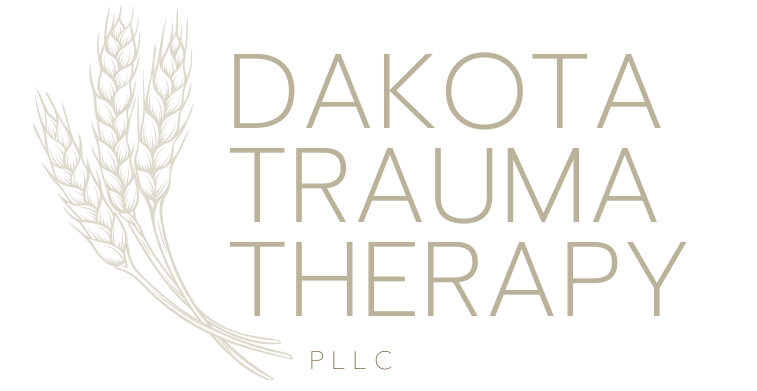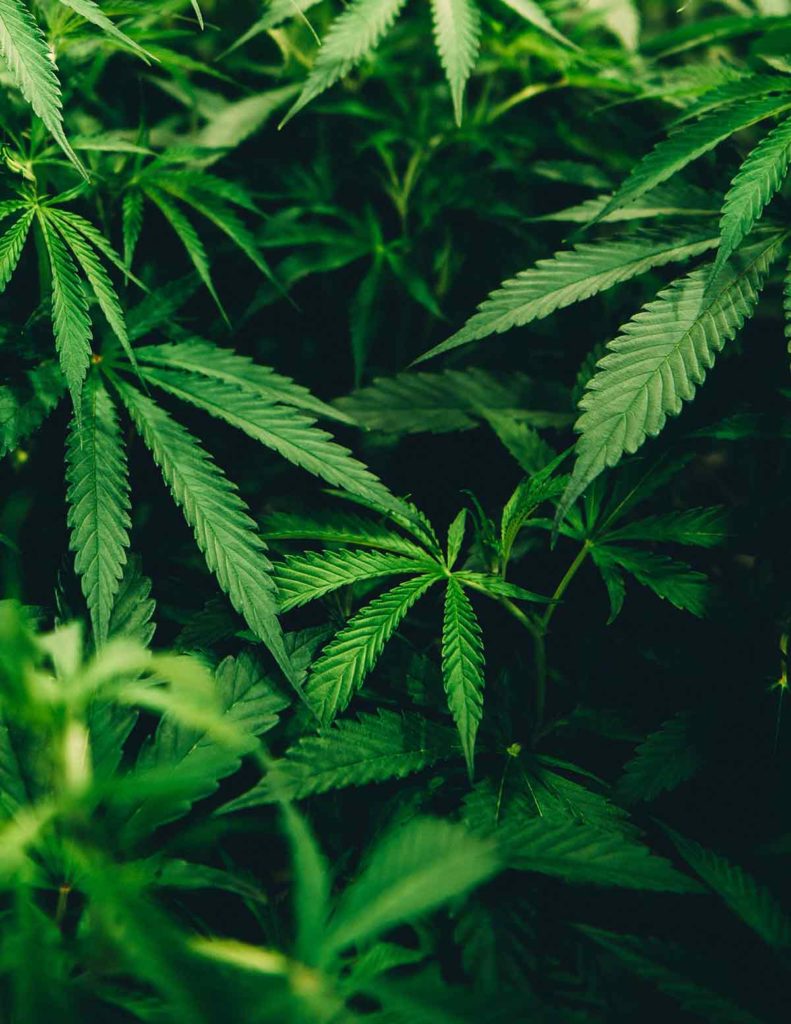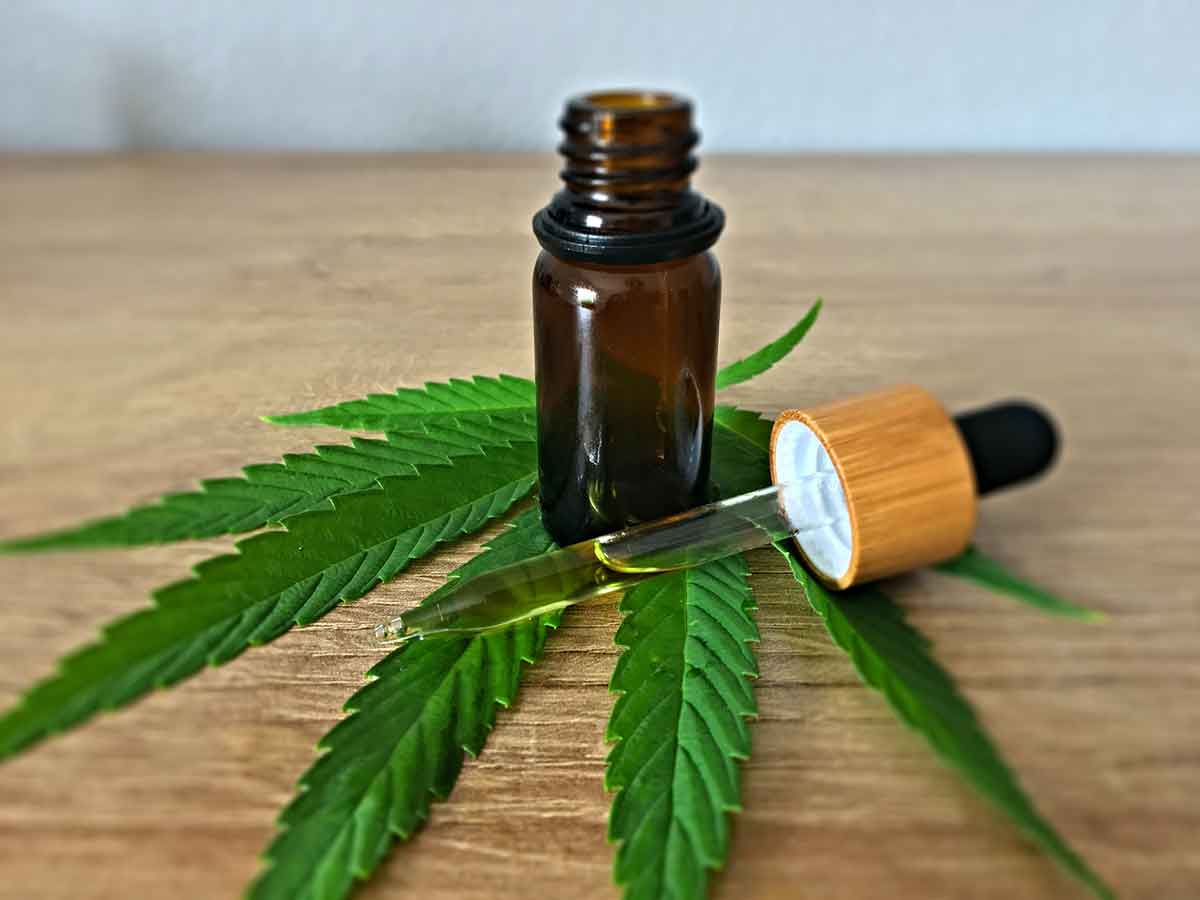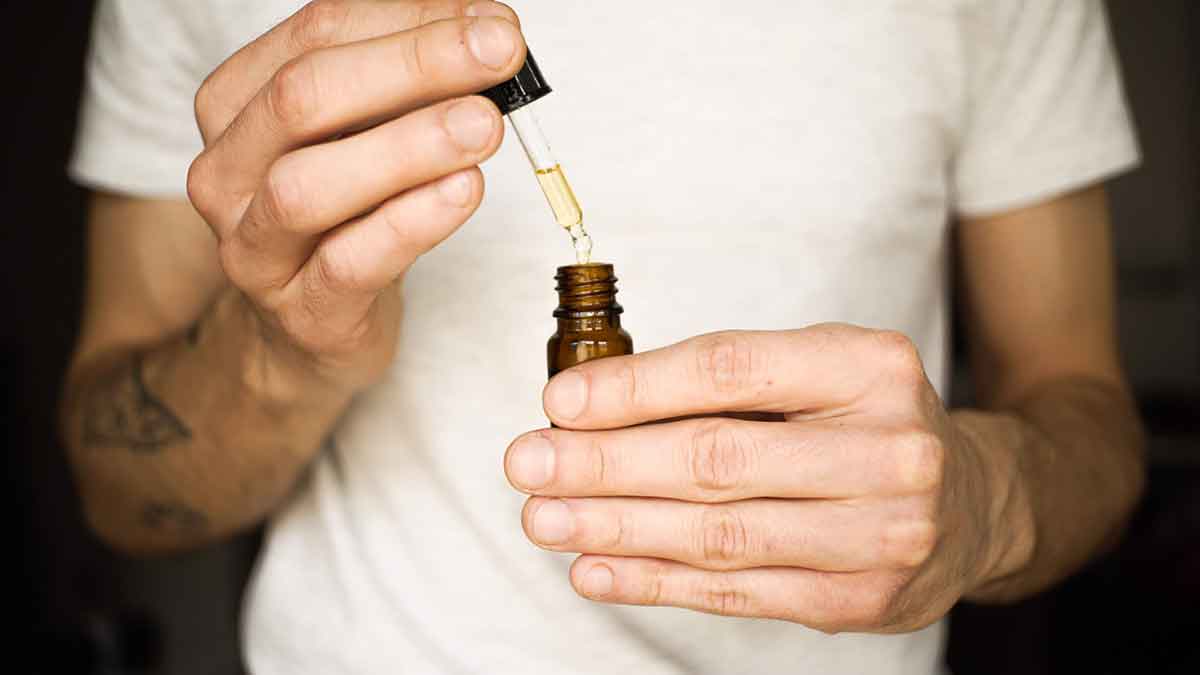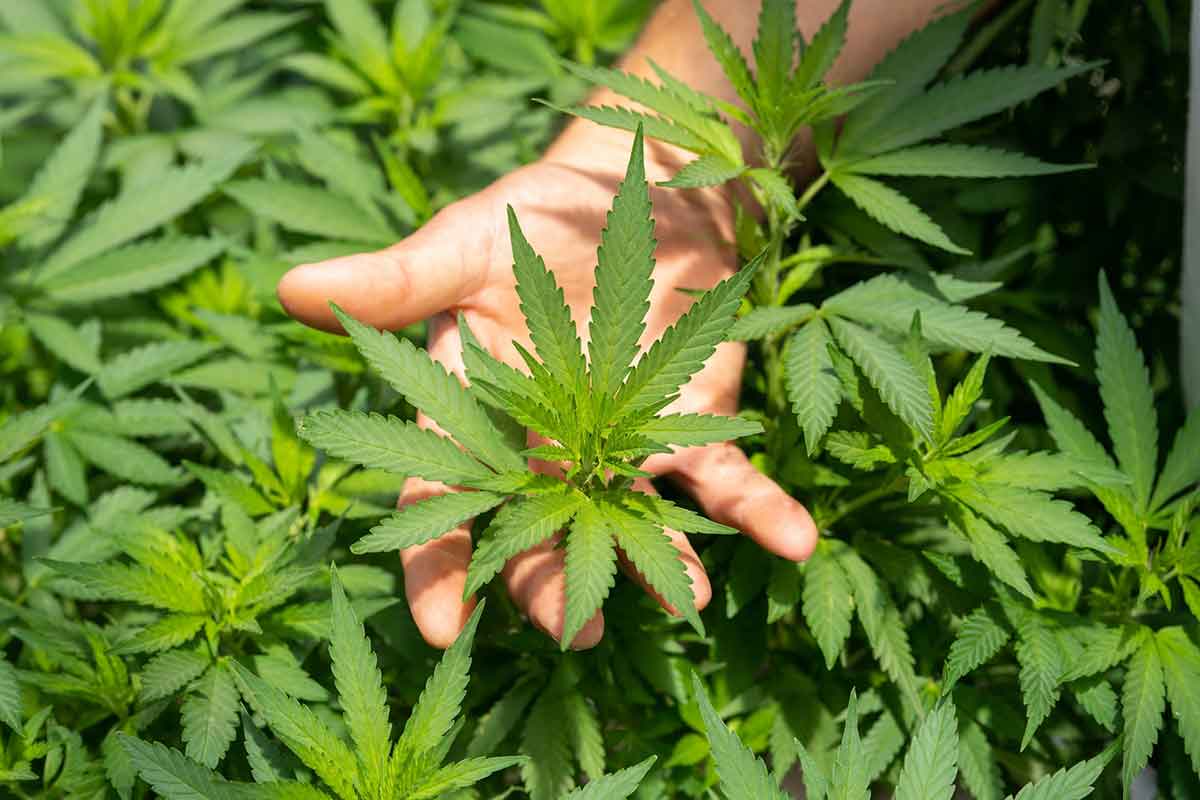Anxiety is a natural response to stress that can be useful in some circumstances. It can warn us of impending threats and assist us in strategizing and paying close attention. However, some people experience recurrent bouts of anxiety, which can progress to high-functioning anxiety or severe anxiety disorders that are distinct from typical uneasiness or anxiety and feature extreme apprehension or anxiety. (1)
Such a condition need therapy and a lifestyle change. Various coping skills for anxiety and treatment options are available to manage anxiety. (2) Some people consider marijuana as a treatment for anxiety. More patients are utilizing it instead of medicines like Zoloft and beta-blockers for anxiety, according to psychiatrists.
So, if you suffer from anxiety, you have definitely heard about the various claims made about the usage of marijuana to treat anxiety levels.
Marijuana is increasingly used to treat mental health issues such as anxiety, depression, and insomnia. However, research on marijuana as a treatment for anxiety is still in its early stages, and some data shows that it may exacerbate these issues. (3)
Some individuals feel that marijuana may be used to relieve anxiety, while others say that it is the source of anxiety. So let us dispel some marijuana misconceptions and learn more about the link between marijuana and anxiety and whether it can be used to treat anxiety.
What is Marijuana?
Marijuana is a psychoactive drug that comes from the Cannabis sativa plant. For ages, the cannabis plant has been used as a recreational and entheogenic substance and in numerous traditional remedies. (4)
While marijuana remains illegal in many places, initiatives to legalize it for medical and recreational uses have been successful in recent years. Marijuana is thought to have the capacity to cure mental health issues such as anxiety and to control the symptoms of illnesses such as cancer. However, several of the world’s most prestigious medical organizations oppose its medical usage. (5)
Marijuana contains a variety of molecules known as cannabinoids, which bind to distinct receptors in the consumer’s brain and modify the concentrations of some essential neurotransmitters. Since different types of marijuana have varying quantities of these chemicals, they may have varying effects on other individuals. (6)
There is a subjective debate on the use of marijuana to treat anxiety. Before we go into the specifics of marijuana and anxiety, it is crucial to note that marijuana has two active ingredients: THC and CBD. Cannabidiol (CBD), a component of marijuana, is thought to help reduce anxiety, according to proponents. CBD is also known to have pain-relieving and anti-inflammatory effects.
It is worth noting that CBD does not cause a high. Tetrahydrocannabinol (THC) is the psychoactive ingredient in marijuana that makes people feel high. This element has been linked to the development or worsening of anxiety symptoms. (7)
CBD has been related to a higher level of relaxation. So, for the best anxiety treatment, look for strains with lower THC and greater CBD or strains with both higher THC and CBD to level out the THC.
The Link Between Anxiety and Marijuana
A sensation of profound relaxation or wellness is commonly associated with marijuana usage; however, this is not always true. Anxiety’s side effects are frequently misinterpreted or underestimated, yet they are crucial to comprehend.
It is hard to establish if marijuana relieves or increases anxiety. The answer is contingent on a number of things. How a person reacts to marijuana is influenced by their mental state and the setting in which they are. Marijuana is a psychoactive substance that alters one’s feelings, thoughts, and emotions. (8)
Marijuana and anxiety can coexist in certain people, and smoking may not result in a pleasant or soothing experience. In fact, it is possible that they will have a completely different experience. Many people believe that using marijuana might cause anxiety symptoms or exacerbate current anxiety, primarily if they use it in an unfavorable circumstance or try to hide their use of the substance.
Long-term usage has also been hazardous. This implies that while marijuana could be soothing in the short term, long-term use can create or exacerbate anxiety symptoms. It is also thought to produce protracted difficulties like memory loss and cognitive disorders.
How Does Marijuana Work for Anxiety?
Marijuana’s active chemicals immediately affect the human endocannabinoid system, a complex set of receptors and regulators. CBD is one of the active components of marijuana and can assist with anxiety symptoms, including fear, restlessness, and paranoia. According to research, CBD can raise the amount of happy neurotransmitter anandamide. This alteration in body hormones can ease your central nervous system, helping you rest while improving your mood. (9)
Another study on marijuana’s soothing effects found that it impacts the neurotransmitter GABA, which plays a crucial role in anxiety and can even stop it before it arises. (10) When taken regularly, marijuana can also help reduce cortisol, a stress hormone. (11)
CBD oil, which is derived from marijuana and does not include THC, is a more commonly accepted and less contentious choice. It will not get you high, but it will help you relax. It is considered to function by influencing the CB1 receptor in the brain, which then positively influences serotonin levels. (12)
While marijuana has been shown to help some individuals, it can also cause worsening anxiety in others. This is especially frequent when users self-medicate with THC-rich marijuana products. However, studies with CBD continue to show promising potential for individuals who suffer from generalized anxiety disorder and social anxiety disorder. (13)
Marijuana is not for everyone, but there is no doubt that its component might help with anxiety in certain people.
Effectiveness of Marijuana
There are just a few human research trials looking into marijuana as a treatment for anxiety. However, a rising amount of research, ranging from animal studies to marijuana user surveys, shows that it may be helpful. This is especially true when marijuana is consumed in the form of CBD oil.
Anxiety was dramatically reduced in patients receiving 400 mg of CBD vs. placebo in one trial involving human and animal subjects. (14)
CBD oil was proven to improve anxiety symptoms in patients with social anxiety disorder in research. Participants’ brains were examined, and it was discovered that CBD oil caused alterations in blood circulation to brain areas connected to anxiety. This analysis shows that CBD oil may be helpful in the treatment of anxiety. This study also elucidates the way CBD interacts with the brain to do this. (15)
A 2018 study looked at the effectiveness of marijuana in treating depression and anxiety. According to the survey, medicinal marijuana users reported a 58% reduction in anxiety and depression. Furthermore, after using medicinal marijuana, females reported a more significant reduction in anxiety than males. It was also shown that marijuana with a high THC and CBD content was the most helpful in stress reduction. (16)
Marijuana consumption might cause anxiety in certain people. The usefulness of medicinal marijuana in treating neurological diseases was investigated in a 2014 research. According to the findings, some patients who took medicine experienced anxiousness as a side effect. It also points to a relationship between anxiety and greater THC levels. (17)
Factors That Influence Effectiveness of Marijuana
When someone takes marijuana, their experience is heavily influenced by aspects unrelated to the drug but by the person’s sensitivity to their environment and sentiments towards the individuals with whom they are in contact. The state of mind of the individual who uses marijuana and the setting in which they consume marijuana are essential factors.
Some of the most critical aspects that determine marijuana’s effects include:
Method of consumption
Marijuana has varying effects based on whether you smoke, vape, or eat it. Smoking and vaping provide a quicker effect and transport more significant THC into circulation than edibles. People may unknowingly consume more THC through edibles due to the delayed effect. Marijuana’s effects usually last one to three hours after inhaling it. The benefits of edibles take longer to show, but they persist for longer. (18)
Frequency of Use
While actual marijuana addiction is infrequent, regular marijuana users may get reliant on it, especially if they consume more powerful marijuana with a higher THC percentage. To get the desired benefits, people may need to take more of the drug or use it more frequently with the advice of their healthcare professional.
Sex
There is a scarcity of data on how different sexes react to marijuana. According to certain studies, females are more likely to experience internal effects like depression and anxiety from marijuana, while males experience external consequences like aggression and impulsivity.
Age
Although there is not much data, some evidence shows that marijuana may be more damaging to teens’ executive function than it is to adults’. This and other age-related consequences may be more likely in persons who use marijuana often.
Benefits of Marijuana
Marijuana has a variety of health advantages. The following are some of the significant benefits:
Improving cognitive functioning
Marijuana products like CBD might help if mental health conditions cause your anxiety. There is enough evidence to back up marijuana’ mental health advantages. It can aid stress relief, depression, PTSD, and mood disturbances. It can also assist in relieving headaches and migraines, as well as combat brain tumors.
Alleviating anxiety symptoms
Marijuana has a significant effect on anxiety symptoms. Rapid heart rate, fear, shaking and twitchy muscles, and general physical stress can all be reduced by the CBD component of marijuana. These are a few of the most common anxiety symptoms. It is possible to minimize general anxiety by reducing these symptoms. Additionally, it can treat anxiety-related nausea, palpitations, and sleeplessness.
Inhibition reduction
The euphoric effects of marijuana products rich in THC can alleviate inhibitions and mental congestion in public interactions. Marijuana use in a social setting might encourage social engagement. CBD has the ability to relax brain functioning, allowing you to enjoy yourself. However, since outcomes vary depending on the user, this field necessitates vigilance and a focus on modest dosages.
Maintaining homeostasis
During high-stress situations, homeostasis is accountable for minimizing hormonal fluctuation. The endocannabinoid system is in charge of maintaining homeostasis in the body. As a consequence, experts believe that marijuana’s influence on receptors in this system might help anxiety patients. This is especially beneficial for people who suffer from social anxiety.
Muscle relaxation
Marijuana not only aids in mental relaxation, but it also aids in the release of physical tensions. This health advantage is primarily due to the THC component in marijuana. Among its many other effects, THC is widely documented in the scientific literature as a muscle relaxant. (19)
Anti-Inflammatory effects
Marijuana has anti-inflammatory qualities that are extraordinary. You can support your body using inflammation correctly by utilizing it, rather than going over the top and creating more damage than good. Marijuana’s anti-inflammatory properties play a significant part in the healing process. Overall, marijuana may assist your body in moving toward recovery and wellness.
Attentiveness
Marijuana aids in bringing your attention and energy back to the present moment. The manner in which marijuana is consumed considerably influences the advantages obtained at the time. Many cannabis users use it to help them focus on the present moment and be more attentive. Marijuana can help you focus on the small details that make each moment remarkable, no matter what you do.
Risks Associated With Marijuana
Marijuana has a wide range of effects on the human body. THC, the chemical component that provides marijuana its psychoactive effects, is responsible for the high sensation you may get after taking it. THC’s effects are not without danger, and long-term or regular usage has been linked to several possible adverse effects. Some of them might be:
Mental disorders
Those who use marijuana for an extended time have probably increased levels and symptoms of depression. According to some studies, heavy marijuana usage throughout youth has also been linked to sadness and anxiety later in life. With the use of marijuana, certain people are in danger of developing psychosis.
Dependency
The main issue with utilizing marijuana as a coping mechanism for anxiety is that it might lead to dependency on the drug. Because marijuana’s effects are immediate, long-term coping techniques may appear less useful at first and be less likely to be sustained. You may also build a tolerance to marijuana, which means the more you consume it, the more you will need to obtain the same high as you did before. (20)
Memory loss
Long-term marijuana usage has been linked to memory impairment in several studies. THC causes memory loss by affecting the hippocampus, which is crucial for memory formation in the brain. It can also have a detrimental impact on the brain’s motivational system.
Severe anxiety symptoms
THC in marijuana can cause tachycardia, which might help you feel even more nervous if you already experience anxiety. Marijuana abuse might also make you feel terrified or confused. Marijuana can often produce an abrupt decrease in blood pressure when trying to stand, making you feel disoriented or faint. Furthermore, it can cause vertigo, nausea, forgetfulness, and vision problems, contributing to anxiety.
Impairment of brain functioning
Marijuana might make it difficult to concentrate, learn, and recall information. This appears to be a temporary impact lasting at least 24 hours after quitting smoking.
However, heavy marijuana use, especially throughout adolescence, might have long-term consequences. Marijuana may substantially alter the brains of certain teens, according to imaging testing. They had less connectivity in regions of the brain associated with attentiveness, cognition, and memory, and testing revealed that some persons had decreased IQ scores.
Cannabis Hyperemesis Syndrome
Cannabis hyperemesis syndrome (CHS) is a rare side effect of regular marijuana usage, especially with today’s strong strains. This condition is characterized by recurrent nausea and vomiting.
Precautions
If you are thinking about using marijuana for anxiety, you need to take the following precautions to lower your chances of it exacerbating your symptoms:
- Consider marijuana products that exclusively contain CBD or a much greater CBD-to-THC ratio, as higher THC levels exacerbate anxiety symptoms.
- Begin with a little dosage. Allow adequate time for it to activate before increasing the dosage.
- Prescription drugs and other medications, including vitamins and supplements, can react with marijuana and limit its efficacy. If you use marijuana while being on other medicines, it is essential to inform your healthcare physician or pharmacist.
- If you are pregnant or nursing, do not consume marijuana to avoid any risks and if you do, make sure to involve your doctor.
- Consult your therapist if you are using marijuana for anxiety; they can help determine how well it is performing for your symptoms and provide extra advice.
Conclusion
Marijuana, specifically CBD and low doses of THC, has been shown to reduce anxiety symptoms briefly. If you choose to try marijuana, remember that it might make some individuals anxious. Until you try it, there is no way to tell how it will impact you. It is advised to take it with caution and in tiny dosages. To avoid any hazards, it is recommended to visit your doctor or therapist.
